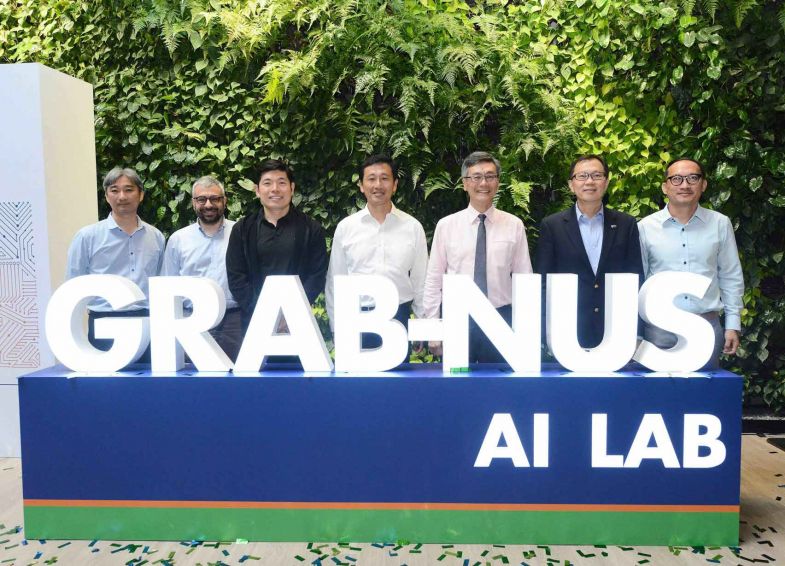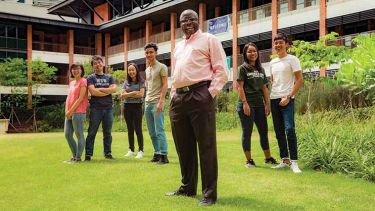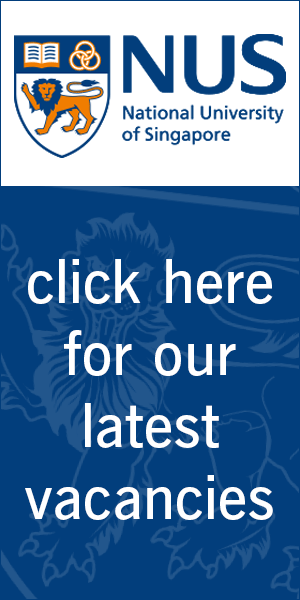Grab and NUS open AI lab to transform cities and transportation in Southeast Asia
- New S$6 million joint lab to support cities with solving some of the region’s most pressing challenges, such as congestion and the liveability of cities
- Grab - NUS AI Lab data reveals how travel time from Newton to Tanjong Pagar can be reduced by 1/3rd
Grab, one of the most frequently used online-to-offline (O2O) mobile platforms in Southeast Asia, and the National University of Singapore (NUS) today launched an artificial intelligence (AI) laboratory to develop solutions to transform urban transportation and pave the way for smarter cities in Southeast Asia. The Grab-NUS AI Lab, which has been set up with a joint initial investment of S$6 million, is Grab’s first major AI laboratory and NUS’ first AI laboratory with a commercial partner.

The Grab-NUS AI Lab was launched by Minister for Education Mr Ong Ye Kung (centre).
Anchored at the NUS Institute of Data Science, the Grab-NUS AI Lab will leverage data from the Grab platform to solve complex, real-world challenges in Southeast Asia. Having facilitated more than 2 billion rides, Grab’s vast troves of data provide deeper insights into how cities across Southeast Asia move today. By combining the data with NUS’ research expertise in the field of AI, and under the supervision of senior Grab research scientists and NUS faculty members, the Grab-NUS AI Lab will map out traffic patterns and identify ways to directly impact mobility and liveability of cities across Southeast Asia.
Read full article at: http://news.nus.edu.sg/press-releases/Grab-NUS-AI-Lab
A Leading Research - Intensive University in the Heart of Asia
Consistently ranked as one of the top universities in Asia and the world, the National University of Singapore (NUS) is internationally respected for its high-quality multi-disciplinary research in science, technology and the humanities — and, increasingly, at the interfaces between these areas. NUS climbed three positions to the 24th spot in the Times Higher Education (THE) World University Rankings 2018 and retained its position as the top university in Asia for the third year running.
NUS' 17 Schools and Faculties, as well as its 30 university-level research institutes and centres, focus on critical and complex issues confronting Asia and the world. The University is also home to three of Singapore’s five Research Centres of Excellence (RCEs) — specialising in quantum technologies, cancer and mechanobiology -— and is a partner in a fourth RCE on environmental life sciences and engineering. Much of the research at NUS is integrated and multi-disciplinary in nature, with particular emphasis on themes such as energy, environmental and urban sustainability solutions; biomedical sciences and translational medicine; active ageing; materials science; and, finance and risk management. Our newest research cluster supports Singapore's Smart Nation initiative through its strategic capabilities in data sciences, optimisation research and cyber-security.
NUS had more than 2,400 research active faculty who produced over 9,700 publications and filed over 350 patents and 319 invention disclosures. Close to S$742 million external research funding was awarded. NUS faculty served as consultants and advisors to more than 1,900 industry and government bodies. Several leading companies have also chosen to establish research labs and partnerships at NUS including Sembcorp, Keppel, Singtel and Agilent.
The NUS Kent Ridge campus, which includes the National University Hospital, is located within Singapore’s main research district. Its neighbours include the Campus for Research Excellence and Technological Enterprise (CREATE) at NUS’ University Town, which brings together top researchers from around the world; the A*STAR research institutes at Biopolis and Fusionopolis; and a variety of public and private labs at the Science Parks. This proximity promotes collaboration and synergy between NUS and the wider R&D community, and creates a fertile environment for education, innovation and enterprise.
NUS constantly pushes the boundaries to achieve research excellence through synergies across multiple disciplines.
At NUS, we adopt an integrated approach, bringing together researchers in diverse fields to examine critical issues in a holistic way to seek innovative measures and solutions to improve life in Asia and the world. Their research covers a wide range of themes including preventive and translational medicine; ageing; energy, environmental and urban sustainability; risk management and resilience of financial systems; smart nation; big data; and quantum technologies.
We also create synergies across boundaries, teaming up with government, industry, NGOs and leading academic partners to ensure that NUS research consistently addresses real-world issues.
Our strategy targets high-level research over a broad base from which several peaks of excellence naturally arise. To better address the interconnected challenges facing Asia and the rest of the world, we have combined the strengths of our faculties, schools and research institutes and centres to build eight integrative research clusters.

To understand more - http://www.nus.edu.sg/dpr/



